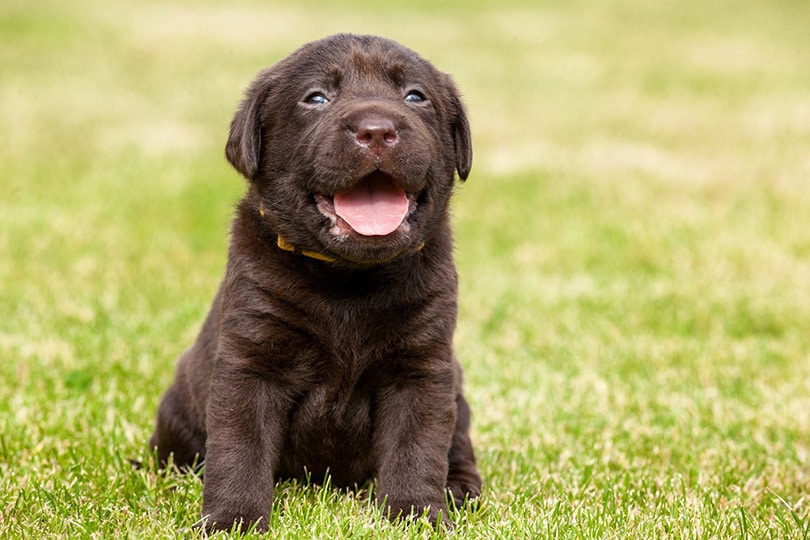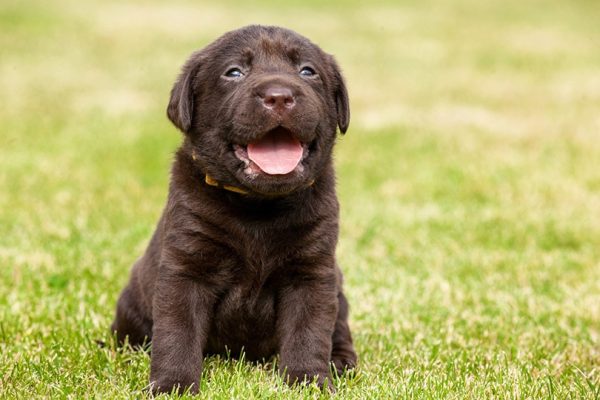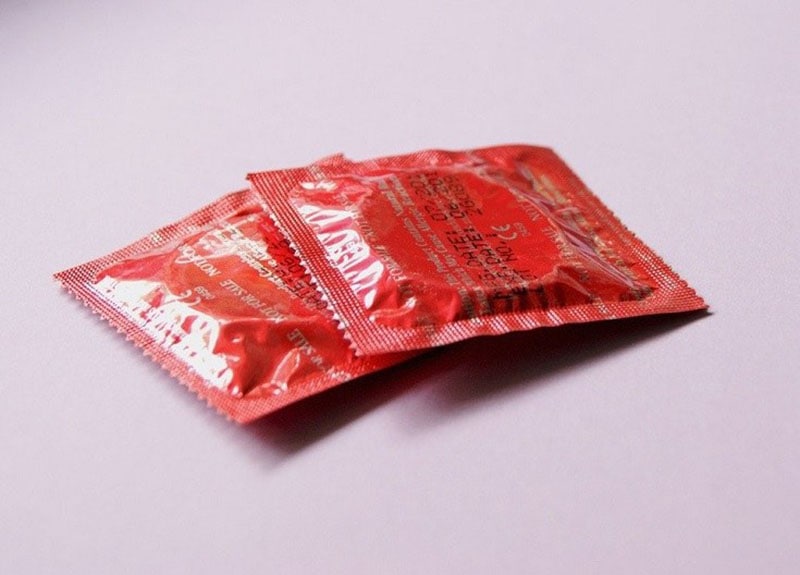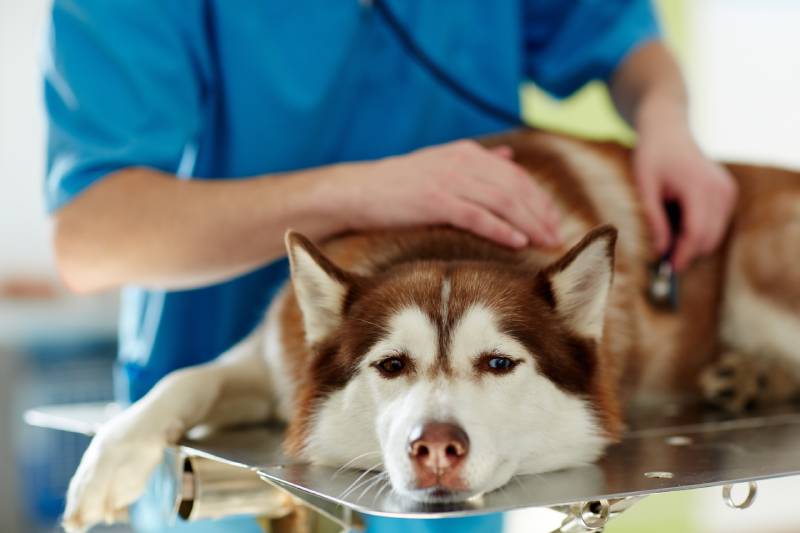Watching a puppy make that first hiccup noise while contracting their belly and having that “I have no idea what’s going on” look on their face is guaranteed to make you smile. However, after the initial laughs, some owners—especially first-time dog owners—can start to wonder whether hiccups are normal or if they could indicate a problem. Keep reading to learn and understand the cause of hiccups in puppies and if there are reasons for concern.
What Are Hiccups?
Hiccups are caused by an involuntary contraction of the diaphragm. The diaphragm is a very thin, but very strong dome-shaped sheet of muscle that separates the thorax from the abdominal cavity in all mammal species.
The diaphragm is the main muscle that helps us control our breathing. When we breathe in, the diaphragm muscle contracts, and moves down towards the abdominal cavity. This expands the space of the thorax and creates a vacuum force that allows the lungs to fill up with air. When we exhale, the opposite happens, the diaphragm muscle relaxes and returns to its dome shape, reducing the thoracic cavity’s space and forcing air out of our lungs.
Hiccups happen when there is a spasm in the diaphragmatic muscle. This causes a series of abrupt and involuntary contractions of the abdomen that result in a series of very forced air movements in and out of the lungs. When the forced air is expelled and passes through the glottis, it triggers the vocal structures to close suddenly, creating that loud and characteristic “HICC-UP” noise.
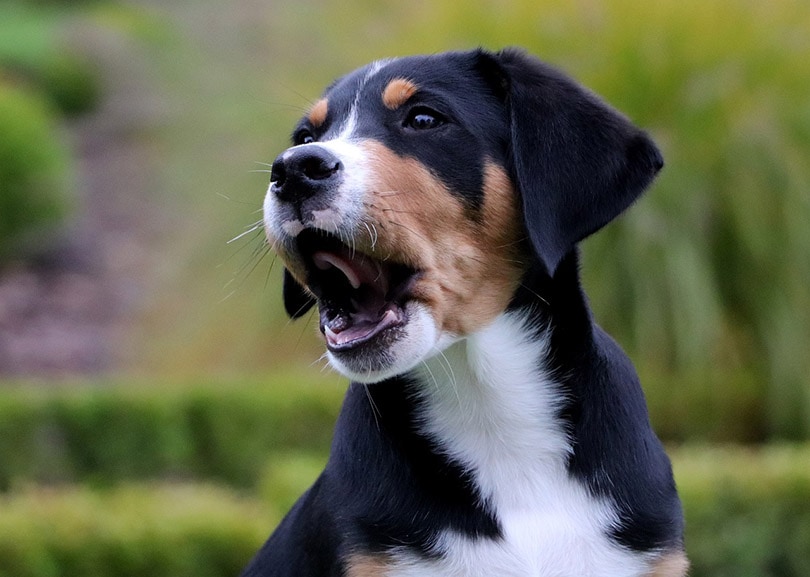
The 10 Potential Reasons Why Puppies Get Hiccups
1. Random diaphragm spasms
2. Over-excitement
3. Intense exercise and running around
4. Stress
5. Respiratory pattern changes
6. Drinking too fast
7. Eating too fast
8. Overeating
9. Ingesting large amounts of air
10. Medical conditions
Why Do Puppies Get Hiccups Frequently?
It is fairly common for puppies to get hiccups. Puppies tend to get hiccups far more frequently than adult dogs. The theory is that puppies are so full of energy, and they tend to get overexcited as they discover the world and their surroundings, which has an impact on their breathing pattern. Puppies tend to drink water faster, gulp on their food faster, and run around more frequently, all these factors increase the possibility of them getting hiccups.
Another theory is that a fit of hiccups is related to the developing and growing muscles and organs in their bodies. Puppies can get hiccups in their sleep—some of them without even waking up! And even before birth, developing puppies in the womb and other mammals’ fetuses can get hiccups—including humans! Scientists believe this is some kind of test drive of the respiratory muscle function. So, all these factors add up and are the reason why puppies generally tend to get hiccups more frequently than adult dogs.
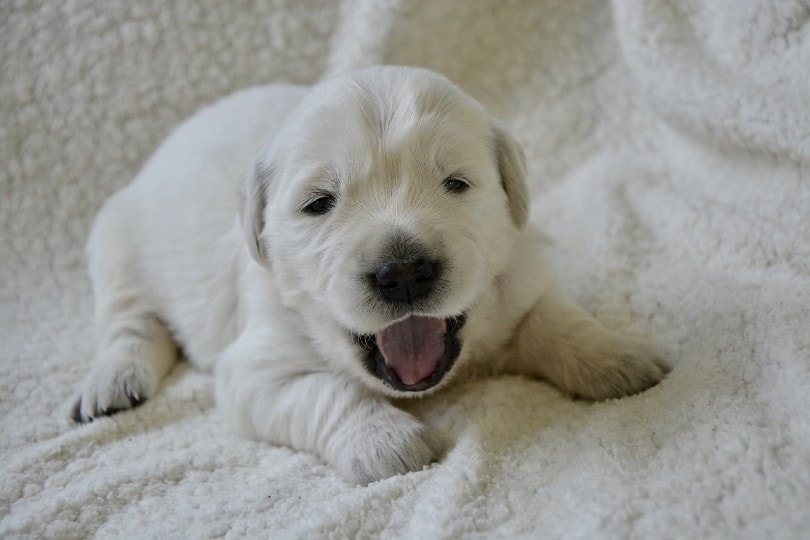
The Effect of Breed
Brachycephalic or flat-faced dog breeds such as Bulldogs, Boxers, and Pugs tend to get hiccups more frequently. Their respiratory anatomy with their shorter muzzles and restricted airflow is the cause for this. So, if you have a flat-faced puppy, the chances of them getting the hiccups frequently are increased.
What Can I Do to Stop My Puppy’s Hiccups?
Normally hiccups will resolve by themselves after a while. There are a lot of theories about ways to stop hiccups, but none of them are a scientific cure. Helping your puppy relax and calm down will help to normalize their breathing pattern. A slow walk or a chest massage can be of great help as well. Offering your puppy some water could be of help too. Some owners report that offering a sweet syrup such as honey, maple, or corn syrup has worked on their dogs. The sweetness distracts the puppies from the hiccups and helps them to calm down. You can give this a try, but do not turn it into a habit as too much sugar is not good for your puppy’s teeth and overall health.
Please do not try to scare your puppy or pull their tongue as these are remedy myths that do not work and will only damage the trust relationship the puppy is starting to build with you and other humans.
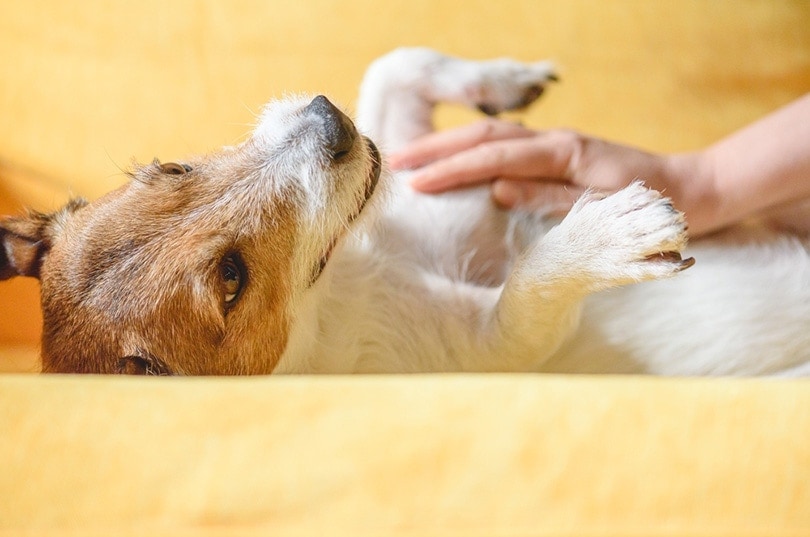
What Can I Do to Prevent My Puppy from Getting Hiccups Too Often?
Offering water on a shorter and wider plate or from a drinking fountain can help to control puppies from drinking too fast.
Getting a slow feeder bowl to prevent your puppy from gulping their food will also make their mealtime more fun and interesting.
Make sure you are not overfeeding your puppy; the right amount of food for their healthy development should be enough. If you offer more, a puppy will likely overeat. Free feeding is not a good idea for a puppy. It is way better to have preset food sessions. The amount of food and number of feedings depends on the age and breed of the puppy. However, offering smaller portions of their daily diet more frequently could help to avoid hiccups as they have a lower chance of getting too full.
Hiccups of Medical Concern
If the hiccups do not stop after more than 1 hour, or if the frequency of hiccup episodes is more than a couple of times a day, this could indicate a medical issue and needs to be addressed with a veterinarian. If the hiccups come with any other signs of breathing distress such as wheezy breathing, coughing, sneezing or reverse sneezing, nasal discharge, etc., or if you also see any other signs such as nausea, vomiting, lethargy, or a reduced appetite, bring the puppy to the vet quickly.
- Gastric problems
- Head trauma or swelling
- Infections affecting the respiratory system, the brain, or the nerves
- Pericarditis or infection of the sac structure surrounding the heart
- Kidney problems, and electrolyte imbalances
The vet needs to check the dog, collect samples, and possibly do some X-rays to investigate a case of persistent hiccups.
Final Thoughts
Sporadic hiccup episodes are normal in dogs. Puppies tend to get hiccups more frequently as a result of their normal puppy behavior and habits. Some breeds are more susceptible than others due to the difference in their respiratory anatomy.
Normally hiccups should come in sporadic episodes and resolve spontaneously. If hiccups present way too frequently or do not stop after more than an hour, this could be due to one or more medical conditions. In this case, you should take your puppy to the vet to discover the cause and find the right treatment.
Featured Image Credit: ales_kartal, Pixabay
Contents
- What Are Hiccups?
- The 10 Potential Reasons Why Puppies Get Hiccups
- 1. Random diaphragm spasms
- 2. Over-excitement
- 3. Intense exercise and running around
- 4. Stress
- 5. Respiratory pattern changes
- 6. Drinking too fast
- 7. Eating too fast
- 8. Overeating
- 9. Ingesting large amounts of air
- 10. Medical conditions
- Why Do Puppies Get Hiccups Frequently?
- The Effect of Breed
- What Can I Do to Stop My Puppy’s Hiccups?
- What Can I Do to Prevent My Puppy from Getting Hiccups Too Often?
- Hiccups of Medical Concern
- Final Thoughts

